How many decisions does the average person make in a day?
 Two dozen? A few hundred? A few thousand?
Two dozen? A few hundred? A few thousand?
Doesn’t it depend on what we consider a decision? Do I decide to get out of bed each morning because I must – to make a living? Hit the light switch? Walk to the kitchen?
Coffee before shower or coffee after? One cup of Joe or two? An egg or fruit? No breakfast at all?
Am I listening to my body? What is it telling me about my decisions – and my choices?
Now we’re talking! Choices with consequences.
Coffee first? Yes. I get it going. Then my laptops as the French Roast brews. But do I need both computers, really? Which first? Does it matter?
Uh-oh. One is running updates. Better open the other to check email. Which email first? Should I use my smartphone? Begin before I brush my teeth or after?
Whew! Decision-making is tiring! (And I’ve only been awake five minutes.)
Priorities, Habits, Consequences
I consider the four tasks I could start, all of relatively equal importance. Oops! I forgot to check last night’s notes in my black-bound agenda, as Mr. Coffee gurgles on. And what if when I see those emails, the entire day ahead must shift?
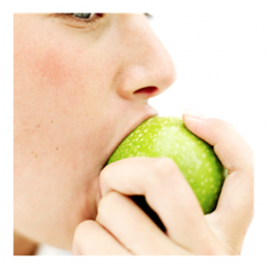 Whatever decisions I make, won’t they be influenced by relative priorities, by habits, by consequences of doing one and leaving another until later?
Whatever decisions I make, won’t they be influenced by relative priorities, by habits, by consequences of doing one and leaving another until later?
If you search the Internet, you will find the average number of decisions people make in a day estimated at hundreds, up to five thousand. And of course your interpretation of a decision is fundamental to your count.
To my surprise, searching on this very topic out of curiosity, I bumped into numerous queries on how many food decisions we make each day – more evidence that we’re preoccupied by what we eat, how often we eat, and what’s in what we eat.
Concerned with health when it comes to the fat issue? You bet. And apparently, a Cornell study indicates that we make 200 food decisions each day – so that blows my original decision tally right out of the water!
Decisions that Count, Counting Decisions
What to eat for breakfast? That’s a non-event for me. I don’t eat breakfast.
Lunch? A different story, and what I choose to consume depends on the mood, the amount of sleep, what’s in the fridge, how my jeans fit, what my schedule is for the rest of the day, what’s coming up later in the week… Okay. I buy it. We make many more decisions about food than we realize – and this before we set foot in a grocery store with a list, or a restaurant with the spouse or hot date.
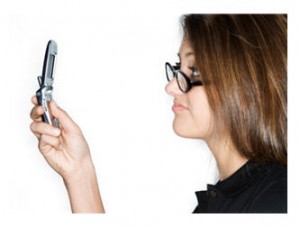 But hey, I’m still in Hour One of my morning. So what do I attack first? Those emails? Which emails? The messages on the cell? One of my checklists? Which checklist?
But hey, I’m still in Hour One of my morning. So what do I attack first? Those emails? Which emails? The messages on the cell? One of my checklists? Which checklist?
Do I tap tap tap out the first words that come to mind as my daily writing? Do I take a few minutes to pillage the brain for a more tantalizing topic, a seductive synonym, or a marvelous metaphor? And the meeting later in the day? Highway or back roads?
Oops. I just skipped ahead a few hours. Should I set that decision aside? Isn’t that another decision?
Holy Millennial Madness!
Options, Choices
A generation or two ago women didn’t make as many decisions. There was a clearer division of labor, and typically the man of the house (if there was one) was “in charge.” That meant making major decisions and possibly minor ones as well, even if they affected the entire family.
Do we all have too many choices now? Are we overwhelmed with options?
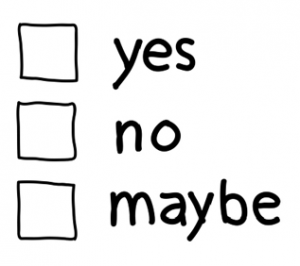 When we hesitate to make decisions, aren’t worries over consequences part of the problem?
When we hesitate to make decisions, aren’t worries over consequences part of the problem?
We anticipate the best (let’s hear it for positive thinking!), we anticipate the worst (contingency planning?), we expect the unexpected and give a nod to fate, or as the French would say – il n’y a pas de hasard.
Sometimes, we procrastinate. We choose “maybe” over yes or no, because we lack sufficient information, or possibly, we have too much. Professional decisions? These are frequently judgment calls. We want more data, we want more time, we weigh and measure the consequences of getting it right (or getting it wrong).
Parenting Decisions – A Whole Other Battlefield
When my boys are home I can double the number of decisions I make in a day. When they were little? Triple it!
 Parenting is an unending stream of decisions, too damn many choices, too many voices, and at each stage it feels like the potential bad decision could be life-changing.
Parenting is an unending stream of decisions, too damn many choices, too many voices, and at each stage it feels like the potential bad decision could be life-changing.
And theoretically, it could. But practically speaking? Not so much.
Wait.
Maybe.
Let me think about that.
Still, those mothering fathering smothering bothering questions, judgments, negotiations – aren’t they a whole other planet of decision-making? Especially when combined with our children’s schedules, emotional needs, physical needs and anticipating the problematic unexpected?
Decision-Making Style
More interesting to me is how we make decisions – quickly, painfully, analytically, emotionally. With or without fleshing out the consequences.
Naturally, the “why” is critical. And when we find ourselves confronting major decisions – why marry, why have a child, why buy a home, why choose a certain profession, why this school, why this city, why this medical procedure, why divorce – shouldn’t we take as clear and informed a path as possible, through the many options and consequences?
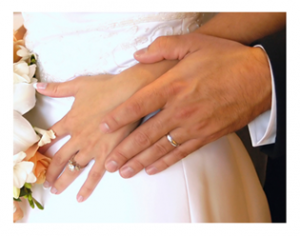 How many of our decisions are set in motion by convention, by familial expectation, by psychological governance of marital status, professional status, financial status, social status – or something more?
How many of our decisions are set in motion by convention, by familial expectation, by psychological governance of marital status, professional status, financial status, social status – or something more?
And when you’re the sole adult in a household and you carry virtually all the decision-making responsibility, isn’t it tiring to make decisions, or at the very least, time-consuming?
Ah… “Good” Routines
May we all turn in our Daily Life Survival Guides to the Prayer In Praise of Routine.
Has decision-making become a health issue? A woman’s health issue in particular? Can’t we trace some of our daily stress to the overflow of decisions at every turn, at ever increasing speeds, and always with high expectations when it comes to outcomes?
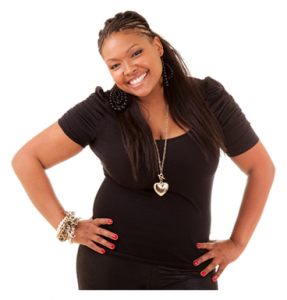 I find myself more stressed when my routines disintegrate, and I struggle until they’re reassembled, feeling better when they are. Among those routines, the habits of self-care, which I set aside unwittingly too often.
I find myself more stressed when my routines disintegrate, and I struggle until they’re reassembled, feeling better when they are. Among those routines, the habits of self-care, which I set aside unwittingly too often.
As an experienced albeit weary juggler, let me suggest there’s a difference between 100 decisions a day and 20 – regardless of significance. But my estimate for myself? In the 200 to 300 per day range, on average, with routine.
With that routine comes a rhythm of non-decision making, as habit and schedule simplify everyday tasks. When that occurs, we can say goodbye to mental churning and endless shuffling of checklists. Instead, a routine of A to B to C to D – including in matters of healthy eating – provides real relief in place of taxing our decision-drained brains.
So what about you?
- Has your decision-making style changed over the years?
- Do you initially incline toward a yes, a no, or do you linger in the maybe column until you have more information?
- How do you make your toughest decisions? Advice? Gut? Listing the pros and cons?
You May Also Enjoy
I seem to be getting better at making decisions faster .. probably because I know either way if I go with my gut instinct usually it’s the best decision. If it doesn’t work out usually I learn something from it anyway – so either way it’s okay. Perhaps what you are speaking of is more worry than decision making. The choice is easy – the worry about the outcome is not. I figure at my age I have learnt a lot about what works, what doesn’t and why.
As for the thought process, I am finding it easier to quieten the mind noise by making a list of ‘must do’s’ for each day. For instance – there are the compulsories – go for a walk, take your vitamins, etc – a list to check off to make sure the important things have been done. It doesn’t always work but when I do stick to the list the day is usually more ordered and my mind is clearer. Nothing like a walk to churn over the decisions and choices and solve a few problems. I guess we need to try not to let the day and all its decisions narrate our lives …
Walking does help, doesn’t it, Vicki Lee. (For some of us, anyway. Really a win-win.) A wise observation that as we get older, we get better at decision-making (faster, certainly).
We need to try not to let the day and all its decisions narrate our lives. Wonderful!
Just thinking about this many decisions wore me out. Thankfully, much of my life is routinized. This sounds awful, like I’m some automaton just going through the motions, but that’s not at all the case. Like you say, it makes things easier sometimes. My morning routine has the least variance, including what I eat for breakfast and the route on which I walk our dogs. Things are more subject to whim, preference, and outside logistics as the day goes on.
Most importantly, though, I think is the fact that when the decision is already made I can count on myself to do good things without thinking about them. I know my breakfast is balanced. I know I will get enough exercise. Etc. And also, when I’m going through my routine my mind is freed up to think about more interesting things.
Didn’t Obama recently say he’s reduced his wardrobe so he doesn’t have to make clothing decisions in the morning? The book Willpower makes the point that decisions cost energy, and if you spend too much time deciding things, you have no energy left to do them.
Do I dare
Disturb the universe?
In a minute there is time
For decisions and revisions which a minute will reverse.
— T.S. Eliot (Prufrock)
I have requested a meeting of my Clearness Committee to consider the following (in part):
I believe we have an entrenched oligarchy, and I support a peaceful uprising to replace it. We have lost our government, which is no longer “of the people, by the people, for the people.”
This is an established process of Quaker testing of decisions regarding spiritual concerns and leadings. I have found it very helpful in the past. We meet Saturday. Check my blog for more. Note that I do invoke my models of Gandhi, King, Tolstoy, and last but not least the life and teachings of Jesus.
Think, inquire, be brave, stand up.
So often I have found that I have not acted or made a decision when I should have, so I will share one today that I feel good about. Today a Villanova staff member retired after fifty-five years of service. Kitty has been one of my waitresses in the faculty lunch room for more than forty-five years. This time she was served lunch in her lunch room, and there was a cake and presents from friends, and large cards signed by many of us. There were about forty people for lunch, somewhat more than usual. We all congratulated her.
However, time passed. I inquired of the two waitresses about when would be the official recognition. They didn’t know. Some food services staff came by to wish her well at her table and then moved on. A waitress cut the cake and told the tables that cake was available.
Decision time. I stood up and told the story of Kitty and her service to the University, led the group in clapping, and then gave her a hug. I think it went well.
Apparently fellow-friends on the staff had set this up, but there was no plan for official recognition. I hope this starts to make amends for all the times I have not acted when I should have.
I give this example because it is quite different from the former one. No big issues or group testing of my views. But be ready to make the decisions and act when the times call for it. Do no harm, but make a fool of yourself if need be.
Wonderful examples, Paul. I thank you for both of them. May we all stand up and speak our minds clearly – not only to “do no harm” but, to “do good.”
55 years. Extraordinary.
well, ahem, the big one we’re wrestling with right now is this:
“what do I want to become when I grow up?”
you note the use of the personal pronoun – gloria, herself, has no such Big Questions. she’s just gloria. and in the risk of being just too-too-too post-modern ironic-y about this – i wish i could learn from her but, you know, it’s hard.
eek.
waving from manhattan.
_tg xx (s)
I’m thankful that by random draw of the cards I ended up the older child in an immigrant home, which means my parents relied on me a lot. So I got that early training in looking for info, trusting my gut, and then being decisive about the info. My brother, on the hand, to this day will waffle on decisions because he’s so afraid of failure that he can’t bring himself to yes or no.
I wonder if we, on some subconscious level, then look to replicate our environments, because I married a husband who is happy to let me make a lot of the decisions (we think alike and he’s easygoing). But maybe this freedom simply feeds into my control freak nature…
Trusting the gut is important, isn’t it, Cecilia? (Doesn’t it get easier as you get older?)
I’ve always found decision-making quite hard work. I’m a born ditherer, sadly. I recently read a book called How to Get Things Done and one of the ideas was to flip a coin… I don’t actually do that, but it did make me realise that many decisions are actually that important.
Sometimes flipping a coin seems just right, Shelley. I’m curious about something you said – “a born ditherer.” Do you think some people are innately more decisive than others?
When I was young, my decision making was quicker. It was black and white for me. As I’ve gotten older, I find myself submerged in the gray zone and decisions, I realize, have long standing ripples. This post reminded me of the saying, “It matters what we do everyday, not what we do once and a while.” I think with decisions regarding our health, financial matters and daily discipline about our career this certainly is the truth.
Such good points, Rudri.